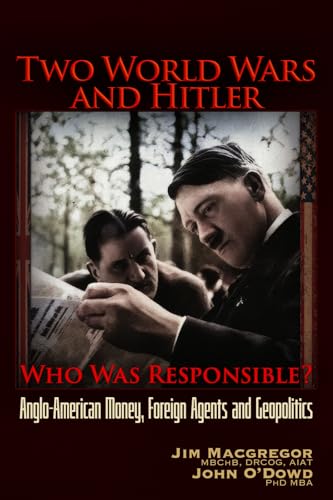
The Royal Naval Air Service in the First World War
by Philip Jarrett
"Aircraft and Events as Recorded in Official Documents"
Popularity
2.72 / 5
* A book's popularity is determined by how it compares to all other books on this website.
Where to buy?
Buy from Amazon* If you buy this book through the link above, we may receive a small commission at no extra cost to you.
The Royal Naval Air Service in the First World War by Philip Jarrett
Details
War:
World War I
Perspective:
Researcher
True Story:
Yes
Biography:
No
Region:
Europe
Published Date:
2015
ISBN13:
9781473875005
Description
Brief Summary
The Royal Naval Air Service in the First World War by Philip Jarrett is a meticulously researched exploration of the contributions and evolution of the Royal Naval Air Service (RNAS) during World War I. This book delves into the strategic, technological, and operational aspects that defined the RNAS, highlighting its significance in naval warfare and the broader context of aviation history. Jarrett's work provides insight into the innovative spirit and challenges faced by this pioneering air service during a transformative period in military aviation.
Main Themes and Topics
The book focuses primarily on the development and achievements of the Royal Naval Air Service within the First World War. One of the key themes is the innovation in aviation technology that the RNAS spearheaded, including advancements in aircraft design and the use of airships and seaplanes. It also covers the strategic use of air power in naval operations, illustrating how the RNAS played a crucial role in reconnaissance, anti-submarine warfare, and fleet support. Furthermore, the book addresses the challenges of coordinating air operations with naval and land forces, shedding light on the broader impact of airpower on military strategy during the war.
Writing Style and Tone
Philip Jarrett's writing style is detailed and authoritative, making it clear that he has conducted thorough research on the subject. His tone is balanced, incorporating both narrative elements and analytical insights, which helps in engaging the reader while providing a comprehensive understanding of the RNAS's operations during World War I. Jarrett's use of archival materials and firsthand accounts adds depth and authenticity to the narrative, making it a valuable resource for historians and enthusiasts of military aviation.
Awards and Recognition
While specific awards for this book are not mentioned, Philip Jarrett is recognized as an accomplished aviation historian. His work, including contributions to various publications on aviation history, has been well-regarded in historical and academic circles for its scholarly approach and insightful analysis.









